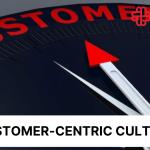In a retail setting, there are many things to consider to maintain a happy team and ensure that customers leave the store happy with their purchases.
A successful retail manager helps develop a motivated team that is customer-focused and always has the department's success in mind.
The team will need to consider seasonal changes, how to display merchandise to make the most sales, and how to be security conscious to prevent shoplifting.
A retail manager is also responsible for the customer journey while they're in the store. They ensure that every interaction with a staff member goes smoothly and that the customer's shopping experience isn’t hindered by the flow of other customers or problems with pricing.
To become a successful store manager, you will need to upskill in marketing and sales techniques and product placement with POS (point-of-sale) displays, handle the best face-to-face communication and customer service and conduct regular training for all staff to help them understand the importance of their role within the wider company.
Upon completion of this course, participants will be able to:
- Understand your roles and responsibilities as a retail manager.
- Study and highlight pain points in the customer journey to aid continuous improvement.
- Motivate and engage your team and create a customer-focused culture.
- Manage merchandising and POS to make more sales.
- Make seasonal layout amendments to increase conversion.
- Effectively manage employee underperformance.
- Understand pricing and discounting within budget.
- Manage health and safety procedures for the premises.
- Conduct regular audits on stock and risk areas to maintain high-quality standards.
This course is designed for people responsible for managing a retail environment and motivating frontline retail employees. It would be most beneficial for:
- Store Managers
- Business Managers
- Operations Managers
- Merchandising Managers
- Customer Service Managers
- Trainers
- Project Planners
- Sales Managers
- Retail Buyers
This course is not just about theory but about practical application. It uses a variety of adult learning methods to ensure full understanding and comprehension. Participants will be able to review the customer journey of successful store chains, practice excellent customer service skills in the face of complaints through role-playing exercises, and devise effective merchandising strategies to increase conversion.
Managers will also share best practices for recognising talent and including it in development plans, highlighting employee underperformance, and learning how to motivate and manage people using helpful skills and techniques.
Day 5 of each course is reserved for a Q&A session, which may occur off-site. For 10-day courses, this also applies to day 10
Section 1: Your Roles & Responsibilities as a Retail Manager
- What is your role within the wider company, and why is it important?
- Career progression in retail management.
- How retail is changing today.
- How online retail is affecting your customer base?
- Workplace essentials and competencies.
- Safety first and risk assessment essentials.
Section 2: Managing a Retail Team
- Leading by example.
- The differences between leading and managing and how they work together.
- HR and recruitment.
- Highlighting talent and creating development opportunities.
- First-week training.
- The relationship between retail and sales.
Section 3: The Coaching & Training Process
- Setting SMART targets.
- How to measure success.
- KPIs and how to display these to the team.
- Regular coaching sessions and managing performance.
- Highlighting underperformance and addressing this with individuals.
- Rewards and incentives for high achievers.
- PDPs and PIPs to improve performance.
Section 4: Business Intelligence & Data Analytics
- The 5 Dimensions Retail Strategy.
- Monitoring competitors to improve your strategy.
- Identifying strengths and weaknesses of your roadmap.
- The EST Model to achieve strategic positioning.
- Business intelligence and how to obtain accurate data.
- Measuring your data against previous years.
Section 5: Performance Against Finances
- Create a high-performance culture.
- Cascading performance against finance.
- Understanding your budget and using this to motivate the team.
- HR programs and procedures to maintain performance in line with business standards.
- FTE count and staffing.
- Rota-based performance against finances.
- Creating scorecards to instil company values and bring about positive change.
Section 6: Your Customer Focus
- Going above and beyond for the customer.
- Understanding and accepting constructive feedback.
- Motivating a team at the beginning of a shift.
- Assessing the customer journey.
- Keeping a clean and safety-conscious environment.
- Service with a smile.
Section 7: Successful Merchandising Methods
- Inventory control and management.
- Seasonal merchandising.
- Assessing security risks and creating mitigation methods.
- Managing your financial resources.
- Reviewing sales performance and making changes based on pain points.
- Your continuous improvement roadmap.
Upon successful completion of this training course, delegates will be awarded a Holistique Training Certificate of Completion. For those who attend and complete the online training course, a Holistique Training e-Certificate will be provided.
Holistique Training Certificates are accredited by the British Assessment Council (BAC) and The CPD Certification Service (CPD), and are certified under ISO 9001, ISO 21001, and ISO 29993 standards.
CPD credits for this course are granted by our Certificates and will be reflected on the Holistique Training Certificate of Completion. In accordance with the standards of The CPD Certification Service, one CPD credit is awarded per hour of course attendance. A maximum of 50 CPD credits can be claimed for any single course we currently offer.
- Course Code IND09-101
- Course Format Classroom, Online,
- Duration 5 days













